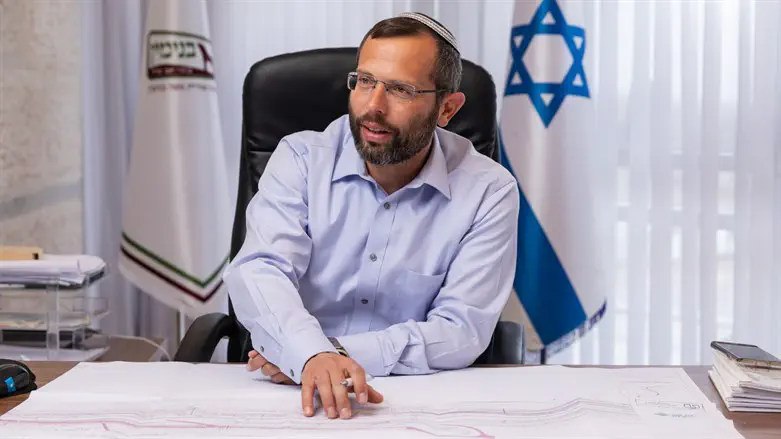
Israel Ganz, the head of the Binyamin Regional Council, harshly condemned on Thursday the violence by a handful of Jewish rioters against Arabs from the PA village of Turmus Aya following the murderous shooting attack near the town of Eli, which left four Israelis, including three teenagers, dead.
"My opinion is clear and straightforward; I say it everywhere, wholeheartedly, and from every platform.No one has the legal or moral authorization to harm innocent people. It is unacceptable and can not be allowed to happen," Ganz said during an interview with Radio 103-FM.
He emphasized, "The statement that it was settlers is simply not true. People come from around the country and stain the name of an entire public. To say 'settlers' is simply an untrue statement."
"The 'settlers' we are talking about lost four of their dear brothers. The sight of my residents covered in blood, the bodies and the injured, these shocking scenes - they give us the will to keep building and planting, but we don't harm others because they harmed us. Our outlook is that every time they kill a Jew, we will expand Jewish settlement and build, and in my opinion, that's the proper answer."
"When there's a crime in Tel Aviv, you don't say, 'Those Tel Avivians are terrible.' There's crime in every part of Israel, unfortunately and I am the last to ignore it. The Council Head's office was transferred to the site of the attack. Nearby, the Police HQ is working in tandem with the IDF. All of the security authorities are working in tight-knit fashion. We are all trying to do two things: to prevent harm to all who travel on the roads, protect ourselves, and observe the law. Any statement otherwise is factually incorrect."
When asked who participates in the riots, Ganz answered: "There are troubled youths. They have a face, you can see them. You understand that if the police could get their hands on someone who lives here, they would get to him in a second and arrest him. No one [here] is interested in that [kind of behavior]. The police don't want anarchy, the military doesn't want anarchy, and the Jewish communities are not interested in anarchy. In the end, we live here. When the chaos is over, it is we who remain here; we live here and drive on the roads."
He continued, "It is clear that our interest in the settlement movement is for it to grow and not to start a third world war here between the various people who drive on the road. I took part in three of the four funerals and saw the pain and the anger. If some people do not know how to express the pain of losing a close friend, we need to help them understand how to manage the pain and what not to do, that's the reality."